

Commentary Select
Commentary Select
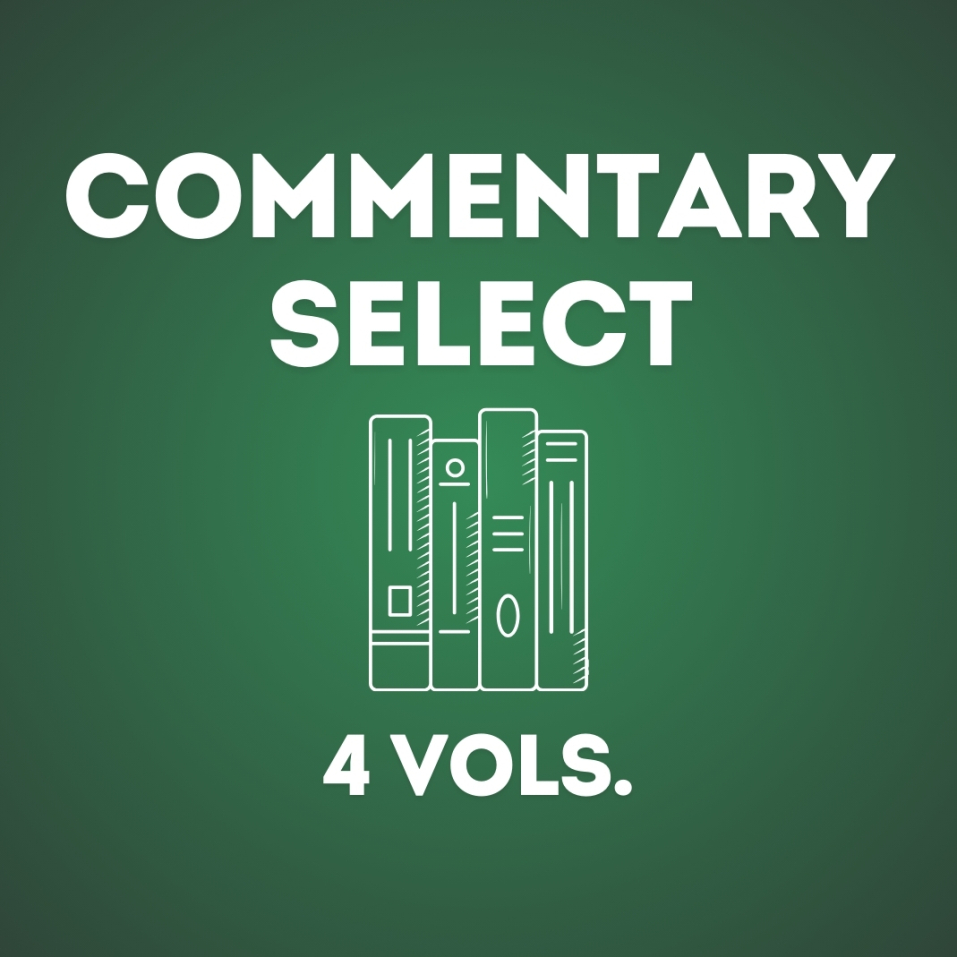
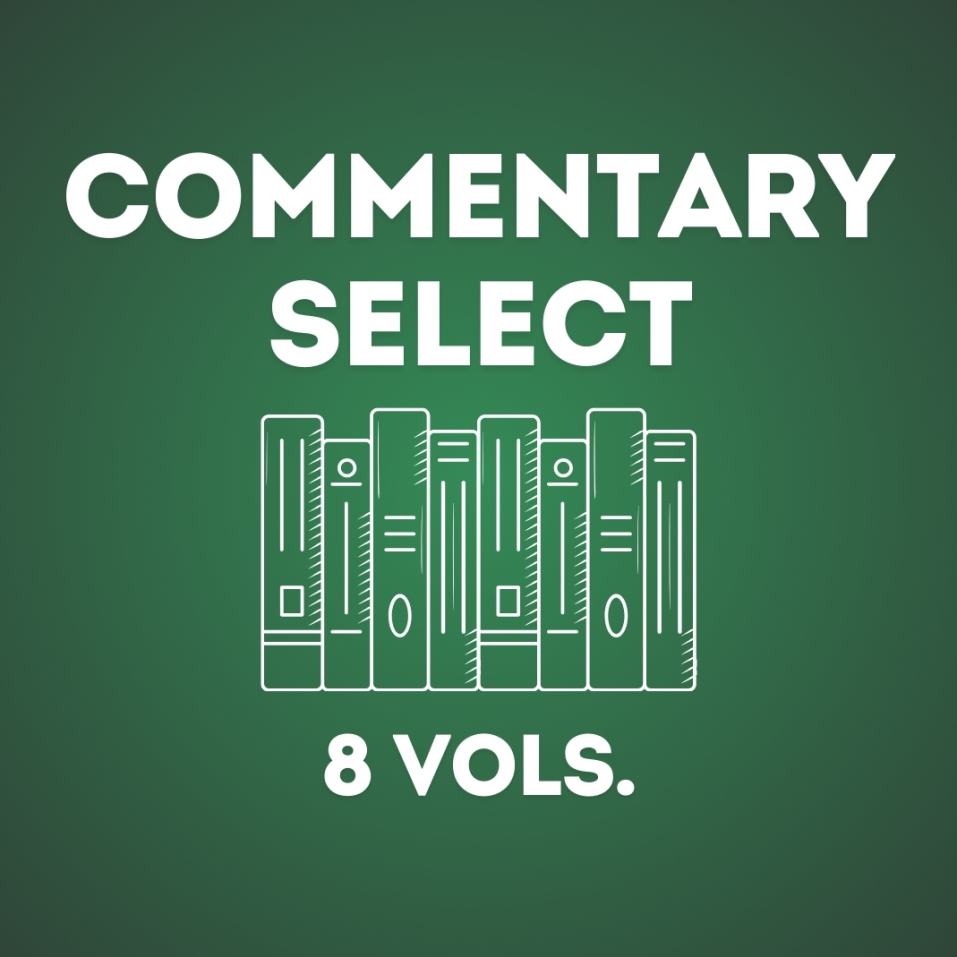
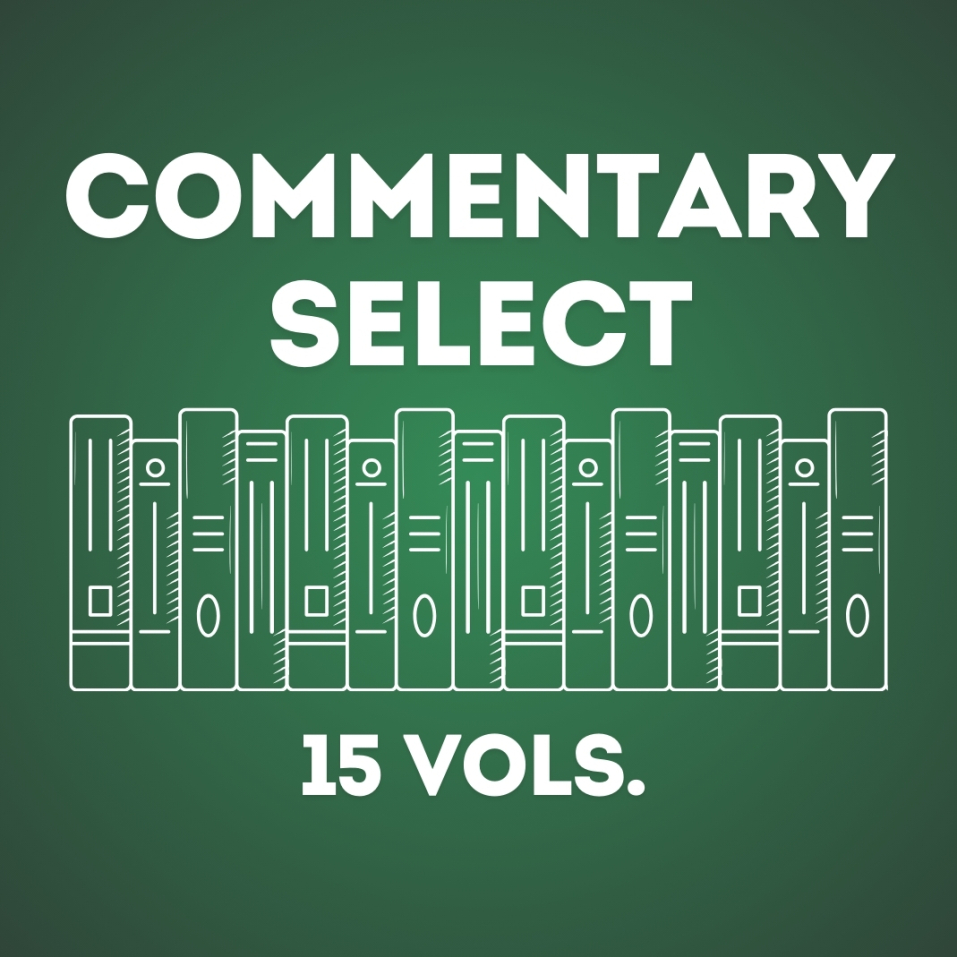

New International Commentary on the Old Testament (NICOT): The Book of Deuteronomy 1-11
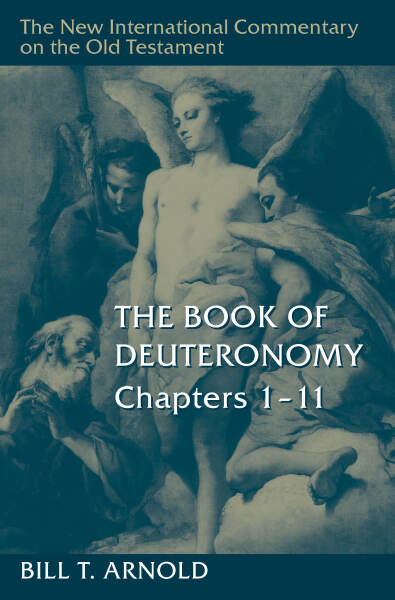
New International Commentary on the Old Testament (NICOT): The Book of Deuteronomy 1-11
“The book of Deuteronomy can rightly be called a compendium of the most important ideas of the Old Testament.” So begins this commentary on the book of Deuteronomy, which Bill Arnold treats as the heart of the Torah and the fulcrum of the Old Testament—crystallizing the themes of the first four books of the Bible and establishing the theological foundation of the books that follow.
After a thorough introduction that explores these and other matters, Arnold provides an original translation of the first eleven chapters of Deuteronomy along with verse-by-verse commentary (with the translation and commentary of the remaining chapters following in a second volume). As with the other entries in the New International Commentary on the Old Testament, Arnold remains rooted in the book’s historical context while focusing on its meaning and use as Christian Scripture today. Ideal for pastors, students, scholars, and interested laypersons, this commentary is an authoritative yet accessible companion to the book of Deuteronomy.
Reviews
“Bill T. Arnold has been working toward this commentary for some time now. Here at last comes the first installment of what is nothing short of a monumental gift to biblical interpreters of all kinds. Arnold has given us the most extensive, careful exposition of the text of Deuteronomy 1–11 we’ve seen in decades. We are all in his considerable debt, and we will remain there for a very long time to come.” - Brent A. Strawn, Duke University
“This new edition exemplifies all that makes NICOT the leading OT commentary series: sane text-critical analysis; exegetical rigor; a deep, wide, and up-to-date engagement with the scholarly literature; and theological sensitivity and relevance. Having read dozens of commentaries and countless other works on Deuteronomy—with a few publications of my own—I still learned a lot from Arnold. More importantly, my love for the book was reignited as Arnold unpacked God’s revelation through the voice of Moses.” - Kenneth Turner, Toccoa Falls College
Bill T. Arnold is the Paul S. Amos Professor of Old Testament Interpretation at Asbury Theological Seminary. At Asbury since 1995, he has served as Vice President of Academic Affairs/Provost, Director of Postgraduate Studies, Chair of the Area of Biblical Studies, and Director of Hebrew Studies. One of the series editors of NICOT, Dr. Arnold is also the author of several other books, including Introduction to the Old Testament.
New International Commentary on the Old Testament (NICOT): The Book of Ecclesiastes

New International Commentary on the Old Testament (NICOT): The Book of Ecclesiastes
Ecclesiastes both absorbing and unforgettable. It stands out in the OT because of its strikingly distinct message. Author Tremper Longman III gives the speaker of the book the name Qohelet, who confronts doubts common in our own time as well as his. Qohelet is compelled by the question, “Where can we finding meaning in the world?” And though his mantra strikes a chord in modern readers, his conclusion is daunting. “Meaningless,” states Qohelet, “everything is meaningless.”
How can this exceedingly negative view agree with the rest of the Biblical revelation? Longman III explores this question by maintaining a canonical, Christ-centered stance in the New International Commentary: The Book of Ecclesiastes.
Longman includes an expansive introduction to this Biblical book, where he writes about such issues as composition, language, genre, structure, literary style, context, and theology. He contends that the writer of Ecclesiastes is not, after all, Solomon, as has been assumed throughout history, but rather a writer who assumes the persona of Solomon.
In the commentary itself, Longman untangles the confusing, occasionally paradoxical meaning of Ecclesiastes by dividing it into three sections: a prologue (1:1-11), the autobiographical speech (1:12-12:7), and the epilogue (12:8-14). An overarching frame (the prologue and the epilogue) is essential to understanding the book as a whole.
New International Commentary on the Old Testament - Series Editor: Robert L. Hubbard Jr.
Maneuvering through Levitical laws, bloodshed in Joshua, or Daniel's apocalyptic visions, sincere readers often wonder what the Old Testament means and how it can be the Word of God. For several decades the New International Commentary on the Old Testament has helped countless people traverse this difficult literary terrain.
All the NICOT volumes combine superior scholarship, an evangelical view of Scripture as the Word of God, and concern for the life of faith today. Each volume features an extensive introduction treating the biblical book's authorship, date, purpose, structure, and theology. The author's own translation of the original Hebrew and verse-by-verse commentary follow. The commentary itself carefully balances coverage of technical matters with exposition of the biblical text's theology and implications.
New International Commentary on the Old Testament (NICOT): The Book of Ezekiel 1-24

New International Commentary on the Old Testament (NICOT): The Book of Ezekiel 1-24
The first twenty four chapters of Ezekiel can seem impossible at times, with their symbolic language and downright extraordinary descriptions. With the New International Commentary: Ezekiel Chapters 1-24 by Daniel Block, the difference will seem like night and day as he guides you through these challenging chapters. Block first offers an introduction that explains matters of composition and provides information on context. The text of the actual commentary is in plain, readable English so you don’t feel like you ended up in the wrong professor’s office.
New International Commentary on the Old Testament - Series Editor: Robert L. Hubbard Jr.
Maneuvering through Levitical laws, bloodshed in Joshua, or Daniel's apocalyptic visions, sincere readers often wonder what the Old Testament means and how it can be the Word of God. For several decades the New International Commentary on the Old Testament has helped countless people traverse this difficult literary terrain.
All the NICOT volumes combine superior scholarship, an evangelical view of Scripture as the Word of God, and concern for the life of faith today. Each volume features an extensive introduction treating the biblical book's authorship, date, purpose, structure, and theology. The author's own translation of the original Hebrew and verse-by-verse commentary follow. The commentary itself carefully balances coverage of technical matters with exposition of the biblical text's theology and implications.
New International Commentary on the Old Testament (NICOT): The Book of Ezekiel 25-48

New International Commentary on the Old Testament (NICOT): The Book of Ezekiel 25-48
The latter half of Ezekiel doesn’t necessarily land you out of the woods in terms of clarity—if anything, God’s constant anger and apparently confusing language here can be distressing. But the New International Commentary: Ezekiel Chapters 25-48 by Daniel Block walks you through these chapters verse-by-verse and brings out Ezekiel’s content and meaning in an accessible, clarifying way. And God’s words through Ezekiel speak powerfully to our time, as well.
New International Commentary on the Old Testament - Series Editor: Robert L. Hubbard Jr.
Maneuvering through Levitical laws, bloodshed in Joshua, or Daniel's apocalyptic visions, sincere readers often wonder what the Old Testament means and how it can be the Word of God. For several decades the New International Commentary on the Old Testament has helped countless people traverse this difficult literary terrain.
All the NICOT volumes combine superior scholarship, an evangelical view of Scripture as the Word of God, and concern for the life of faith today. Each volume features an extensive introduction treating the biblical book's authorship, date, purpose, structure, and theology. The author's own translation of the original Hebrew and verse-by-verse commentary follow. The commentary itself carefully balances coverage of technical matters with exposition of the biblical text's theology and implications.
New International Commentary on the Old Testament (NICOT): The Book of Genesis 1-17
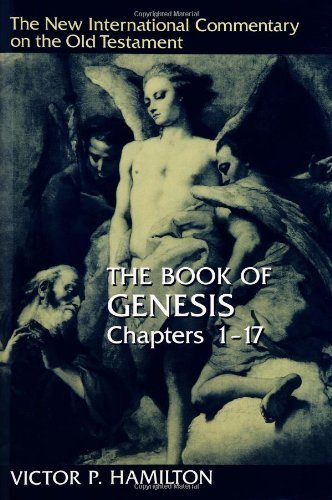
New International Commentary on the Old Testament (NICOT): The Book of Genesis 1-17
This first part of Victor P. Hamilton’s New International Commentary on Genesis seeks to provide clarity on these first seventeen chapters—chapters that have been theologically essential (and debated) for many years. Hamilton writes an introduction that covers structure, composition, canonicity, the text itself, interpretive problems, and theology.
Hamilton’s expert knowledge on Genesis’ context—the ancient Near East—helps you understand scripture as it would have been understood thousands of years ago. He also demonstrates his expertise in contemporary scholarship, so you don’t miss out on today’s scholarly advances. However, contrary to many scholars, Hamilton defends Genesis’ literary and theological unity.
You’ll also see the beauty of Genesis’ central focus: that of reconciliation and continued relationship with Him despite the failings of people. This has many ties into the New Testament and the early church—you’ll get to see how the first Christians used Genesis in their own time.
New International Commentary on the Old Testament - Series Editor: Robert L. Hubbard Jr.
Maneuvering through Levitical laws, bloodshed in Joshua, or Daniel's apocalyptic visions, sincere readers often wonder what the Old Testament means and how it can be the Word of God. For several decades the New International Commentary on the Old Testament has helped countless people traverse this difficult literary terrain.
All the NICOT volumes combine superior scholarship, an evangelical view of Scripture as the Word of God, and concern for the life of faith today. Each volume features an extensive introduction treating the biblical book's authorship, date, purpose, structure, and theology. The author's own translation of the original Hebrew and verse-by-verse commentary follow. The commentary itself carefully balances coverage of technical matters with exposition of the biblical text's theology and implications.
New International Commentary on the Old Testament (NICOT): The Book of Genesis 18-50

New International Commentary on the Old Testament (NICOT): The Book of Genesis 18-50
Read on as the beginnings of God’s chosen people unfold even further. Although the amount of pure content in Genesis can seem overwhelming, the New International Commentary: Genesis Chapters 18-50 seeks to make it more manageable while soundly explaining theology, issues of criticism, and crucial background information. Like the first chapters of Genesis, these later chapters continually reveal God’s covenant dedication to His chosen people.
New International Commentary on the Old Testament - Series Editor: Robert L. Hubbard Jr.
Maneuvering through Levitical laws, bloodshed in Joshua, or Daniel's apocalyptic visions, sincere readers often wonder what the Old Testament means and how it can be the Word of God. For several decades the New International Commentary on the Old Testament has helped countless people traverse this difficult literary terrain.
All the NICOT volumes combine superior scholarship, an evangelical view of Scripture as the Word of God, and concern for the life of faith today. Each volume features an extensive introduction treating the biblical book's authorship, date, purpose, structure, and theology. The author's own translation of the original Hebrew and verse-by-verse commentary follow. The commentary itself carefully balances coverage of technical matters with exposition of the biblical text's theology and implications.
New International Commentary on the Old Testament (NICOT): The Book of Hosea

New International Commentary on the Old Testament (NICOT): The Book of Hosea
In the New International Commentary: The Book of Hosea, J. Andrew Dearman goes back to Hosea’s own cultural heritage—especially the covenant relationships that God had made with Israel through its troubled history. Dearman translates the ancient Hebrew himself, and makes a potentially clouded text clear in terms of its poetic style. Hosea’s story of Israel’s disloyalty, judgment, and forgiveness is a truly haunting lived-out metaphor.
It doesn’t matter what previous experience you have with the Bible. Readers of all kinds should take advantage of this commentary that adds so much clarity to the book of Hosea. The writers of this commentary have been scholars, teachers, and writers—which means they know how to communicate their knowledge in a concise, readable way.
Dearman operates off of his own translation of the text on a verse-by-verse basis. He’ll bring more scholarly matters—like textual criticism—side by side with how Hosea applies to everyday life. Like each other volume in this series, this one begins with an introduction that covers information on context, literary aspects, and theology. If you’re interested in reading further, Dearman includes a bibliography that will lead you in the right direction.
New International Commentary on the Old Testament - Series Editor: Robert L. Hubbard Jr.
Maneuvering through Levitical laws, bloodshed in Joshua, or Daniel's apocalyptic visions, sincere readers often wonder what the Old Testament means and how it can be the Word of God. For several decades the New International Commentary on the Old Testament has helped countless people traverse this difficult literary terrain.
All the NICOT volumes combine superior scholarship, an evangelical view of Scripture as the Word of God, and concern for the life of faith today. Each volume features an extensive introduction treating the biblical book's authorship, date, purpose, structure, and theology. The author's own translation of the original Hebrew and verse-by-verse commentary follow. The commentary itself carefully balances coverage of technical matters with exposition of the biblical text's theology and implications.
New International Commentary on the Old Testament (NICOT): The Book of Isaiah 1-39

New International Commentary on the Old Testament (NICOT): The Book of Isaiah 1-39
This first installment of John N. Oswalt’s New International Commentary: The Book of Isaiah is excellent on all fronts: whether you approach from a theological, literary, or linguistic perspective, you can’t go wrong. Oswalt combines all these things with a great deal of historical context to provide a reliable commentary on Isaiah—an immensely vital part of the Old Testament.
Oswalt takes into account issues of context, theology, literary traits, canonicity, and background while remaining true to the original Hebrew. Central issues from authorship to message are addressed substantially. This original commentary (which operates from Oswalt’s own translation of the original Hebrew) is ideally suited for all levels of Bible readers.
New International Commentary on the Old Testament - Series Editor: Robert L. Hubbard Jr.
Maneuvering through Levitical laws, bloodshed in Joshua, or Daniel's apocalyptic visions, sincere readers often wonder what the Old Testament means and how it can be the Word of God. For several decades the New International Commentary on the Old Testament has helped countless people traverse this difficult literary terrain.
All the NICOT volumes combine superior scholarship, an evangelical view of Scripture as the Word of God, and concern for the life of faith today. Each volume features an extensive introduction treating the biblical book's authorship, date, purpose, structure, and theology. The author's own translation of the original Hebrew and verse-by-verse commentary follow. The commentary itself carefully balances coverage of technical matters with exposition of the biblical text's theology and implications.
New International Commentary on the Old Testament (NICOT): The Book of Isaiah 40-66

New International Commentary on the Old Testament (NICOT): The Book of Isaiah 40-66
Chapters 40-66 of Isaiah are some of the most beautifully written chapters in the Bible. As the writer addresses Jews during and returning from the exile, you’ll find messages of hope and encouragement as Israel faces the challenge of rediscovering its identity as God’s chosen people.
In the New International Commentary: Isaiah Chapters 40-66, widely regarded scholar John Oswalt of Asbury Theological Seminary continues to present his thorough research via a sound expounding of Biblical texts. He begins with subjects of authorship and composition, and then moves on to the commentary proper, which draws on comprehensive linguistic and historical study. Whether you’re a scholar or a new reader, this commentary will help you get to know this crucial part of the Old Testament.
New International Commentary on the Old Testament - Series Editor: Robert L. Hubbard Jr.
Maneuvering through Levitical laws, bloodshed in Joshua, or Daniel's apocalyptic visions, sincere readers often wonder what the Old Testament means and how it can be the Word of God. For several decades the New International Commentary on the Old Testament has helped countless people traverse this difficult literary terrain.
All the NICOT volumes combine superior scholarship, an evangelical view of Scripture as the Word of God, and concern for the life of faith today. Each volume features an extensive introduction treating the biblical book's authorship, date, purpose, structure, and theology. The author's own translation of the original Hebrew and verse-by-verse commentary follow. The commentary itself carefully balances coverage of technical matters with exposition of the biblical text's theology and implications.
New International Commentary on the Old Testament (NICOT): The Book of Jeremiah

New International Commentary on the Old Testament (NICOT): The Book of Jeremiah
The New International Commentary: The Book of Jeremiah by J.A. Thompson is advanced yet easy to read. It’s one of the best works on Jeremiah available today—it will help you understand this truly wonderful book that emphasizes God’s covenant love for his people. Aside from the commentary itself, Thompson’s book on Jeremiah seeks to solidify your knowledge of Jeremiah as a prophet. Thompson also writes about problems of exegesis (in-depth explanation) and historical/background information. Wherever you fall in the spectrum of Bible reading, this enjoyable commentary on Jeremiah is sure to heighten your understanding.
New International Commentary on the Old Testament - Series Editor: Robert L. Hubbard Jr.
Maneuvering through Levitical laws, bloodshed in Joshua, or Daniel's apocalyptic visions, sincere readers often wonder what the Old Testament means and how it can be the Word of God. For several decades the New International Commentary on the Old Testament has helped countless people traverse this difficult literary terrain.
All the NICOT volumes combine superior scholarship, an evangelical view of Scripture as the Word of God, and concern for the life of faith today. Each volume features an extensive introduction treating the biblical book's authorship, date, purpose, structure, and theology. The author's own translation of the original Hebrew and verse-by-verse commentary follow. The commentary itself carefully balances coverage of technical matters with exposition of the biblical text's theology and implications.
New International Commentary on the Old Testament (NICOT): The Book of Jeremiah (Goldingay)
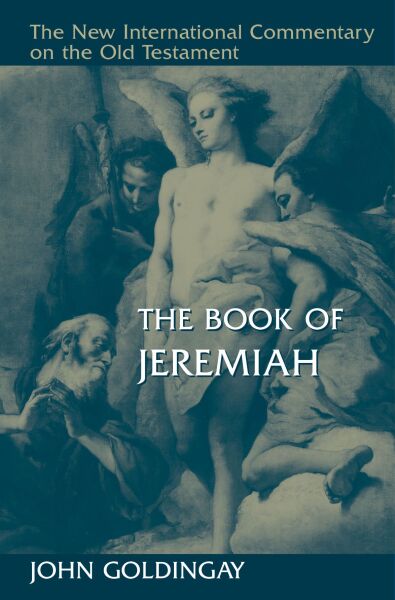
New International Commentary on the Old Testament (NICOT): The Book of Jeremiah (Goldingay)
Of the Major Prophets, Jeremiah is perhaps the least straightforward. It is variously comprised of stories about the prophet Jeremiah, exchanges between Jeremiah and Yahweh, and messages directly from Yahweh—meaning a consciousness of form is essential to the understanding of its content. At times it is written in poetry, resembling Isaiah, while at other times it is written in prose, more similar to Ezekiel. And it is without doubt the darkest and most threatening of the Major Prophets, inviting comparisons to Amos and Hosea.
John Goldingay, a widely respected biblical scholar who has written extensively on the entire Old Testament, navigates these complexities in the same spirit as other volumes of the New International Commentary on the Old Testament series—rooted in Jeremiah’s historical context but with an eye always trained on its meaning and use as Christian Scripture. After a thorough introduction that explores matters of background, composition, and theology, Goldingay provides an original translation and verse-by-verse commentary of all fifty-two chapters, making this an authoritative and indispensable reference for scholars and pastors as they engage with Jeremiah from a contemporary Christian standpoint.
Reviews
“Drawing from a well of interpretation two millennia deep, Goldingay provides to beginning students as well as experts a coherent, accessible commentary on Jeremiah as a book of Scripture. His discussions of the diction and structure, poetry and rhetoric of the Hebrew text enable readers to join him in investigating Jeremiah with empathetic historical imagination.” — Pamela J. Scalise, Fuller Theological Seminary
“With a refreshing approach to the commentary genre, Goldingay outstandingly leads his audience to navigate the depth, complexity, and ambiguity of the Jeremiah scroll. Using lucid, reader-friendly, and empowering rhetoric, he has eloquently demonstrated the power of imagination with fresh angles of perception. Readers are invited to engage in pursuing this complex book with pointers and directives provided by the author.” — Barbara M. Leung Lai, Tyndale University
“In this landmark commentary on Jeremiah, John Goldingay succeeds in mingling the best of textual and critical scholarship with freshness of insight and theological relevance. His mastery of the arts of biblical interpretation and his knowledge of critical scholarship are unparalleled, yet he frees the reader from entanglement in arcane jargon. He has a unique knack for conveying complex matters in ways that are fresh and compelling. Above all, the prophet Jeremiah is not allowed to become a creature of literary process but emerges as one who has had an experience of God and who has bequeathed an immense theological legacy in the book that bears his name. This commentary is an immensely valuable resource for all serious readers of the Old Testament.” — J. Gordon McConville University of Gloucestershire
John Goldingay is the David Allan Hubbard Professor Emeritus of Old Testament at Fuller Theological Seminary. He is the author of numerous commentaries and books, including the NICOT commentary on the book of Jeremiah, Reading Jesus's Bible: How the New Testament Helps Us Understand the Old Testament, and an original translation of the Old Testament entitled The First Testament.
New International Commentary on the Old Testament (NICOT): The Book of Job

New International Commentary on the Old Testament (NICOT): The Book of Job
Job is a book of unique renown. For people who undergo any kind of suffering, Job confronts the difficult question of theodicy (as C.S. Lewis puts it, “the problem of pain”). It challenges the blessing/reward theology found in the Pentateuch and the view that God ought not be confronted in times of trial. Job is honest with God about his pain, and is richly rewarded in the end.
The New International Commentary: The Book of Job provides essential contextual information and insightful commentary on the Hebrew text of Job. This evangelical commentary comes with an introduction that addresses context, canonicity, literary aspects, theology, and message. Author John E. Hartley’s wide knowledge of the ancient Near East will put Job in the light of its own time without sacrificing contemporary scholarship and or the meaning of the text itself.
New International Commentary on the Old Testament - Series Editor: Robert L. Hubbard Jr.
Maneuvering through Levitical laws, bloodshed in Joshua, or Daniel's apocalyptic visions, sincere readers often wonder what the Old Testament means and how it can be the Word of God. For several decades the New International Commentary on the Old Testament has helped countless people traverse this difficult literary terrain.
All the NICOT volumes combine superior scholarship, an evangelical view of Scripture as the Word of God, and concern for the life of faith today. Each volume features an extensive introduction treating the biblical book's authorship, date, purpose, structure, and theology. The author's own translation of the original Hebrew and verse-by-verse commentary follow. The commentary itself carefully balances coverage of technical matters with exposition of the biblical text's theology and implications.
New International Commentary on the Old Testament (NICOT): The Book of Joshua

New International Commentary on the Old Testament (NICOT): The Book of Joshua
Whereas the Pentateuch is, largely, an account of Israel’s failures, Joshua is a success story. Here, God’s people finally take possession of the land promised to them. They conquer a great deal of kingdoms and experience the fullness of God’s blessings: “[n]ot one word of all the good promises that the LORD had made to the house of Israel had failed; all came to pass” (Josh. 21:45, ESV). And Joshua’s speech, which starts in the twenty third chapter, is a beautiful farewell that echoes Deuteronomy in a personal, impassioned way. Joshua is a striking window into the good that God has in store for His people.
The New International Commentary: The Book of Joshua by Marten Woudstra draws from extensive study in history and linguistics. He provides vital commentary in terms of the ancient Hebrews’ perspective and that of modern scholarship.
New International Commentary on the Old Testament - Series Editor: Robert L. Hubbard Jr.
Maneuvering through Levitical laws, bloodshed in Joshua, or Daniel's apocalyptic visions, sincere readers often wonder what the Old Testament means and how it can be the Word of God. For several decades the New International Commentary on the Old Testament has helped countless people traverse this difficult literary terrain.
All the NICOT volumes combine superior scholarship, an evangelical view of Scripture as the Word of God, and concern for the life of faith today. Each volume features an extensive introduction treating the biblical book's authorship, date, purpose, structure, and theology. The author's own translation of the original Hebrew and verse-by-verse commentary follow. The commentary itself carefully balances coverage of technical matters with exposition of the biblical text's theology and implications.
New International Commentary on the Old Testament (NICOT): The Book of Lamentations (Goldingay)
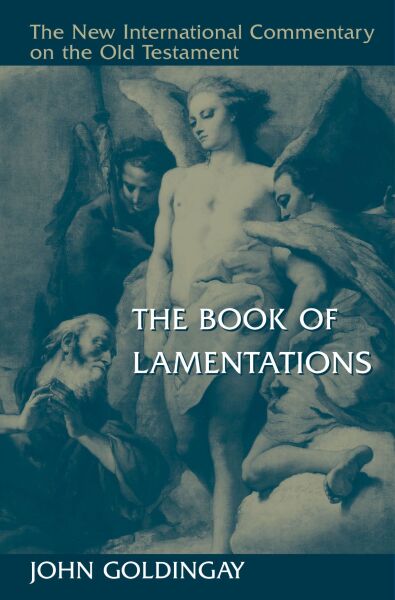
New International Commentary on the Old Testament (NICOT): The Book of Lamentations (Goldingay)
The book of Lamentations is one of the most vivid representations of grief and trauma in the Hebrew Bible. Written in the wake of the fall of Jerusalem to the Babylonian Empire, it is comprised of five poems of twenty-two stanzas each, in a manner of tight formal unity unparalleled by any other work in the Scriptures.
In this volume, widely respected Old Testament scholar John Goldingay analyzes these and other aspects of Lamentations while keeping a constant eye on the book’s meaning and use as Christian Scripture. After a thorough introduction that explores matters of background, composition, and theology, Goldingay provides an original translation of the book from the Masoretic text along with verse-by-verse commentary.
Reviews
"We need a wise guide in navigating the poetry of funerary lament and human anguish. Fortunately, we have oine in John Goldingay." - J. Andrew Dearman, Fuller Theological Seminary
Goldingay offers a masterful analysis of the book of Lamentations - a fresh translation of this poetic masterpiece with thoughtful commentary and reflection that incorporates the latest biblical scholarship. This volume will be a valuable and timely resource for students, ministers, and scholars who will find it a joy to consult as they study Lamentations." - Nancy L. deClaisse-Walford, McAfee School of Theology, Mercer University
John Goldingay is the David Allan Hubbard Professor Emeritus of Old Testament at Fuller Theological Seminary. He is the author of numerous commentaries and books, including the NICOT commentary on the book of Jeremiah, Reading Jesus's Bible: How the New Testament Helps Us Understand the Old Testament, and an original translation of the Old Testament entitled The First Testament.
New International Commentary on the Old Testament (NICOT): The Book of Leviticus

New International Commentary on the Old Testament (NICOT): The Book of Leviticus
The modern church pays significantly less attention to this part of the Pentateuch. To many readers, the subjects of Leviticus—ritual, food, cleanliness, and purification laws—seem inapplicable to today’s church. What does Leviticus have to do with contemporary Christians?
In the New International Commentary: The Book of Leviticus, Gordan Wenham accounts for Leviticus’ original, textual meaning and its core theology. Wenham consults studies on Old Testament ritual/sacrifice, then compares and contrasts them to those of other ancient Near Eastern practices in order to rebuild the text’s contextual meaning. Wenham also refers to the work of social anthropologists and skillfully applies critical literary tools to highlight the author’s interests.
Wenham connects each section of Leviticus to passages from the New Testament and to modern Christianity to bring out its enduring theological themes. This reveals just how common some Levitical ideas are in the New Testament and helps us apply God’s command to be holy, just as He is holy.
New International Commentary on the Old Testament - Series Editor: Robert L. Hubbard Jr.
Maneuvering through Levitical laws, bloodshed in Joshua, or Daniel's apocalyptic visions, sincere readers often wonder what the Old Testament means and how it can be the Word of God. For several decades the New International Commentary on the Old Testament has helped countless people traverse this difficult literary terrain.
All the NICOT volumes combine superior scholarship, an evangelical view of Scripture as the Word of God, and concern for the life of faith today. Each volume features an extensive introduction treating the biblical book's authorship, date, purpose, structure, and theology. The author's own translation of the original Hebrew and verse-by-verse commentary follow. The commentary itself carefully balances coverage of technical matters with exposition of the biblical text's theology and implications.
New International Commentary on the Old Testament (NICOT): The Book of Micah
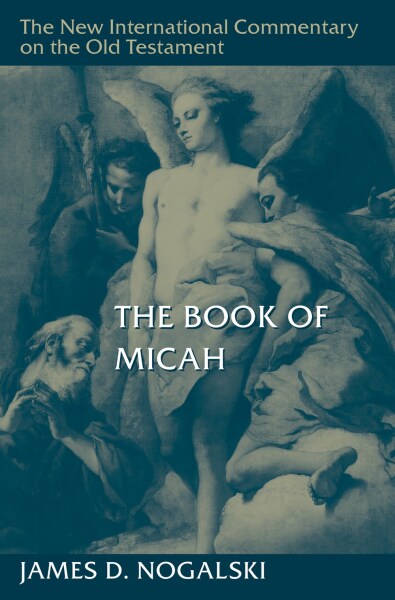
New International Commentary on the Old Testament (NICOT): The Book of Micah
Micah spoke powerfully to the people of Judah millennia ago. His prophecy has the same power to change the minds and hearts of Christians today. As a volume of the New International Commentary on the Old Testament, James D. Nogalski’s fresh commentary on Micah is academically serious and pastorally relevant.
Based on Nogalski’s original translation of the Hebrew text, this commentary takes seriously the historical and theological contexts of the book of Micah. The thorough introduction considers the book’s literary form, its composition, and its function in the canon, especially within the Book of the Twelve. Ample notes point readers to the most relevant, up-to-date critical scholarship. Nogalski explicates Micah’s major themes, including fidelity to Yahweh, abuses of power, and the intriguing juxtaposition of judgment and hope for God’s people.
Combining scholarly rigor with an evangelical point of view, The Book of Micah serves as the perfect companion for scholars, students, and pastors seeking to understand this essential prophet.
James D. Nogalski is the W. Marshall and Lulie Craig Professor of Old Testament at Baylor University. He is best known for his work on the prophets, especially the Book of the Twelve.
New International Commentary on the Old Testament (NICOT): The Book of Numbers (Ashley 1993)
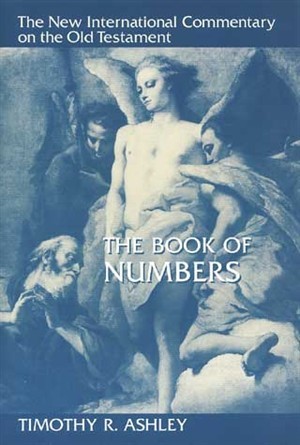
New International Commentary on the Old Testament (NICOT): The Book of Numbers (Ashley 1993)
Numbers is an account with two central figures: God and Israel. Although the account appears strange and even cruel at times, the difficulties presented by Numbers deserve to be honestly faced by today’s Bible readers. The New International Commentary: The Book of Numbers will also hone in on the recurring theme of following God without deviation—a theme that speaks to any and every age of Christians.
This intensive commentary is the product of almost ten years of Numbers scholarship by Timothy Ashley. It presents a detailed explanation of the original Hebrew text and comes with an introduction that addresses matters of structure, composition, and theology. A bibliography of major books on Numbers (largely from the English, French, and German) is also included.
Ashley sections the text of Numbers into five parts as he traces and expounds on the theological themes of obedience and disobedience that color the entirety of Numbers. His verse-by-verse notes explain the Hebrew text itself.
New International Commentary on the Old Testament - Series Editor: Robert L. Hubbard Jr.
Maneuvering through Levitical laws, bloodshed in Joshua, or Daniel's apocalyptic visions, sincere readers often wonder what the Old Testament means and how it can be the Word of God. For several decades the New International Commentary on the Old Testament has helped countless people traverse this difficult literary terrain.
All the NICOT volumes combine superior scholarship, an evangelical view of Scripture as the Word of God, and concern for the life of faith today. Each volume features an extensive introduction treating the biblical book's authorship, date, purpose, structure, and theology. The author's own translation of the original Hebrew and verse-by-verse commentary follow. The commentary itself carefully balances coverage of technical matters with exposition of the biblical text's theology and implications.
New International Commentary on the Old Testament (NICOT): The Book of Numbers, 2nd Ed.

New International Commentary on the Old Testament (NICOT): The Book of Numbers, 2nd Ed.
The book of Numbers tells a story with two main characters—God and Israel. The way the story is told sounds odd and often harsh to readers today. The main point of the book is nevertheless of immense importance for God’s people in any age: exact obedience to God is crucial.
This comprehensive and erudite commentary presents a thorough explication of this significant Hebrew text. Timothy Ashley’s introduction discusses such questions as structure, authorship, and theological themes, and it features an extended bibliography of major works on the book of Numbers. Then, dividing the text of Numbers into five major sections, Ashley elucidates the theological themes of obedience and disobedience, which run throughout. His detailed verse-by-verse comments primarily explain the Hebrew text of Numbers as it stands rather than speculate on how the book came to be in its present form.
This second edition includes revisions that reflect Ashley’s decades of experience with the book of Numbers, as well as updates to the footnotes and bibliography, which add many important works published in the last thirty years. With these new features, Ashley’s commentary solidifies its place as the church’s most faithful and definitive reference on the book of Numbers.
Reviews
“An excellent, well-informed treatment of an important and difficult book...It holds many lessons for the pilgrim people of God.” - Southwestern Journal of Theology
“A balanced and sensitive treatment. Highly recommended as a fresh and authoritative approach to this difficult but theologically rich Old Testament book.” - Bibliotheca Sacra
“A reader of Numbers will find much help in this extensive commentary.” - Journal of Religion
“A good commentary for the student or pastor.” - Studies in Religion/Sciences Religieuses
Timothy R. Ashley is a retired minister and professor of biblical studies who taught at Acadia Divinity College, Nova Scotia, and Central Baptist Theological Seminary, Wisconsin.
New International Commentary on the Old Testament (NICOT): The Book of Proverbs 1-15

New International Commentary on the Old Testament (NICOT): The Book of Proverbs 1-15
The eagerly awaited New International Commentary: The Book of Proverbs Chapters 1-15 has been carefully crafted for over twenty five years and is expected to set the bar in Proverbs research. Authored by the prominent Old Testament scholar Bruce Waltke, this dual-volume commentary is undoubtedly the most thorough study of Proverbs available.
Waltke’s work utilizes new literary tools that have done much for Bible interpretation. He clearly shows the continuing profundity and direct bearing that Proverbs has on our daily lives. Waltke includes a detailed introduction that deals with textual issues, structure, composition, theology, and more. The commentary proper expounds and illuminates Proverbs as “theological literature” in an extremely accessible way. His own translation of the Hebrew text and sharp commentary are well suited for ministers, students, teachers, and all kinds of readers.
New International Commentary on the Old Testament - Series Editor: Robert L. Hubbard Jr.
Maneuvering through Levitical laws, bloodshed in Joshua, or Daniel's apocalyptic visions, sincere readers often wonder what the Old Testament means and how it can be the Word of God. For several decades the New International Commentary on the Old Testament has helped countless people traverse this difficult literary terrain.
All the NICOT volumes combine superior scholarship, an evangelical view of Scripture as the Word of God, and concern for the life of faith today. Each volume features an extensive introduction treating the biblical book's authorship, date, purpose, structure, and theology. The author's own translation of the original Hebrew and verse-by-verse commentary follow. The commentary itself carefully balances coverage of technical matters with exposition of the biblical text's theology and implications.
New International Commentary on the Old Testament (NICOT): The Book of Proverbs 15-31
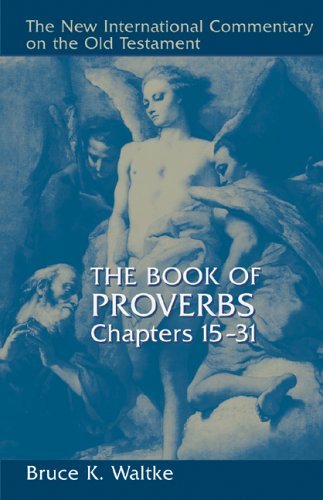
New International Commentary on the Old Testament (NICOT): The Book of Proverbs 15-31
The New International Commentary: The Book of Proverbs Chapters 15-31 has been carefully crafted for over twenty five years and is expected to set the bar in Proverbs research. Authored by the prominent Old Testament scholar Bruce Waltke, this dual-volume commentary is undoubtedly the most thorough study of Proverbs available.
Waltke’s work utilizes new literary tools that have done much for Bible interpretation. He clearly shows the continuing profundity and direct bearing that Proverbs has on our daily lives. Waltke includes a detailed introduction that deals with textual issues, structure, composition, theology, and more. The commentary proper expounds and illuminates Proverbs as “theological literature” in an extremely accessible way. His own translation of the Hebrew text and sharp commentary are well suited for ministers, students, teachers, and all kinds of readers.
New International Commentary on the Old Testament - Series Editor: Robert L. Hubbard Jr.
Maneuvering through Levitical laws, bloodshed in Joshua, or Daniel's apocalyptic visions, sincere readers often wonder what the Old Testament means and how it can be the Word of God. For several decades the New International Commentary on the Old Testament has helped countless people traverse this difficult literary terrain.
All the NICOT volumes combine superior scholarship, an evangelical view of Scripture as the Word of God, and concern for the life of faith today. Each volume features an extensive introduction treating the biblical book's authorship, date, purpose, structure, and theology. The author's own translation of the original Hebrew and verse-by-verse commentary follow. The commentary itself carefully balances coverage of technical matters with exposition of the biblical text's theology and implications.
New International Commentary on the Old Testament (NICOT): The Book of Psalms
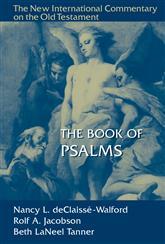
New International Commentary on the Old Testament (NICOT): The Book of Psalms
This work by Nancy L. deClaissé-Walford, Rolf Jacobson, and Beth Tanner is the most complete and detailed one-volume commentary available on the Psalms. Significantly, the volume reflects the combined insights of three superior (younger) biblical scholars.
DeClaissé-Walford, Jacobson, and Tanner offer a succinct introduction to the Psalter, a new translation of all the psalms that takes special account of the Dead Sea Scrolls, and individual entries on each psalm unit. Throughout the book they draw on state-of-the-art research on the canonical shape and shaping of the Psalter and evidence a nuanced attention to the poetic nature of the psalms.
New International Commentary on the Old Testament - Series Editor: Robert L. Hubbard Jr.
Maneuvering through Levitical laws, bloodshed in Joshua, or Daniel's apocalyptic visions, sincere readers often wonder what the Old Testament means and how it can be the Word of God. For several decades the New International Commentary on the Old Testament has helped countless people traverse this difficult literary terrain.
All the NICOT volumes combine superior scholarship, an evangelical view of Scripture as the Word of God, and concern for the life of faith today. Each volume features an extensive introduction treating the biblical book's authorship, date, purpose, structure, and theology. The author's own translation of the original Hebrew and verse-by-verse commentary follow. The commentary itself carefully balances coverage of technical matters with exposition of the biblical text's theology and implications.
New International Commentary on the Old Testament (NICOT): The Book of Ruth

New International Commentary on the Old Testament (NICOT): The Book of Ruth
“Do not urge me to abandon you, to turn back from following after you. For wherever you go, I will go, and wherever you lodge, I will lodge. Your people are my people, and your God is my God.”
In this pivotal verse, Ruth’s self-sacrificial declaration of loyalty to her mother-in-law Naomi forms the relationship at the heart of the book of Ruth. Peter H. W. Lau’s new translation and commentary explores the human and divine love at the center of the narrative as well as the book’s relevance to Christian theology.
In the latest entry in the New International Commentary on the Old Testament, Lau upholds the series’ standard of quality. The Book of Ruth includes detailed notes on the translation and pays careful attention to the original Hebrew and the book's historical context, all the while remaining focused on Ruth’s relevance to Christian readers today. An indispensable resource for pastors, scholars, students, and all readers of Scripture, Lau’s commentary is the perfect companion to one of the most beloved books of the Old Testament.
Peter Hon Wan Lau is visiting scholar in Old Testament studies at Seminari Theoloji Malaysia (since 2010). His dissertation was on the book of Ruth, and he has written books (academic and pastoral) on Ruth, Ezekiel, Psalms, and Esther. His specialty is reading OT texts in their full canonical context, discerning how they point to and are fulfilled in Jesus.
New International Commentary on the Old Testament (NICOT): The Book of Ruth

New International Commentary on the Old Testament (NICOT): The Book of Ruth
Ruth is permeated with God’s providential care for Ruth and her family. The New International Commentary: The Book of Ruth draws from recent scholarship to carefully address the book of Ruth’s literary, grammatical, and theological aspects. Hubbard highlights the literary mastery and distinct theological views within Ruth in order to offer a new date and purpose for it. By acknowledging Ruth and Naomi’s success as divine providence, says Hubbard, the author of Ruth was countering challenges to the Davidic monarchy during Solomon’s kingship.
This long-beloved story is now accompanied with in-depth notes on matters of context, literary criticism, genre, setting, canonicity, themes, and theology—not to mention Hubbard’s original translation of the original Hebrew text. Hubbard also provides a bibliography for readers who want to go further in their study of this enduring, redemptive, and truly wonderful story of God’s devoted love.
New International Commentary on the Old Testament - Series Editor: Robert L. Hubbard Jr.
Maneuvering through Levitical laws, bloodshed in Joshua, or Daniel's apocalyptic visions, sincere readers often wonder what the Old Testament means and how it can be the Word of God. For several decades the New International Commentary on the Old Testament has helped countless people traverse this difficult literary terrain.
All the NICOT volumes combine superior scholarship, an evangelical view of Scripture as the Word of God, and concern for the life of faith today. Each volume features an extensive introduction treating the biblical book's authorship, date, purpose, structure, and theology. The author's own translation of the original Hebrew and verse-by-verse commentary follow. The commentary itself carefully balances coverage of technical matters with exposition of the biblical text's theology and implications.
New International Commentary on the Old Testament (NICOT): The Book of Zechariah

New International Commentary on the Old Testament (NICOT): The Book of Zechariah
New International Commentary on the Old Testament - Series Editor: Robert L. Hubbard Jr.
Maneuvering through Levitical laws, bloodshed in Joshua, or Daniel's apocalyptic visions, sincere readers often wonder what the Old Testament means and how it can be the Word of God. For several decades the New International Commentary on the Old Testament has helped countless people traverse this difficult literary terrain.
All the NICOT volumes combine superior scholarship, an evangelical view of Scripture as the Word of God, and concern for the life of faith today. Each volume features an extensive introduction treating the biblical book's authorship, date, purpose, structure, and theology. The author's own translation of the original Hebrew and verse-by-verse commentary follow. The commentary itself carefully balances coverage of technical matters with exposition of the biblical text's theology and implications.
New International Commentary on the Old Testament (NICOT): The Books of Ezra and Nehemiah
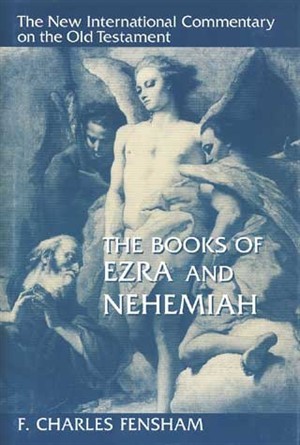
New International Commentary on the Old Testament (NICOT): The Books of Ezra and Nehemiah
In the New International Commentary: The Books of Ezra and Nehemiah, F. Charles Fensham carefully walks readers through the books of Ezra and Nehemiah—two books that are central for a correct understanding of the origins of Judaism, particularly the roots of the Pharisees. This serves as invaluable background to Jesus’ interactions with the Jewish authorities in the New Testament.
Fensham is widely regarded for his studies of the ancient Near East, specifically the Ugarit language. He compares/contrasts Ezra and Nehemiah with the ancient Near Eastern world and addresses authorship and the original unity of the two books in his introduction. He deals with matters of historical and religious context, paying heightened attention to the growth of Jewish religion after the Babylonian exile. He then analyzes text and language and concludes with a comprehensive bibliography for readers who want to study further.
For the commentary itself, Fensham works with his own translation of the Biblical text. He doesn’t hesitate to consult of the work of others, however, and shows wise judgment in his translation—not to mention shrewd intuition when it comes to the meaning of these significant Hebrew texts.
New International Commentary on the Old Testament - Series Editor: Robert L. Hubbard Jr.
Maneuvering through Levitical laws, bloodshed in Joshua, or Daniel's apocalyptic visions, sincere readers often wonder what the Old Testament means and how it can be the Word of God. For several decades the New International Commentary on the Old Testament has helped countless people traverse this difficult literary terrain.
All the NICOT volumes combine superior scholarship, an evangelical view of Scripture as the Word of God, and concern for the life of faith today. Each volume features an extensive introduction treating the biblical book's authorship, date, purpose, structure, and theology. The author's own translation of the original Hebrew and verse-by-verse commentary follow. The commentary itself carefully balances coverage of technical matters with exposition of the biblical text's theology and implications.
New International Commentary on the Old Testament (NICOT): The Books of Ezra and Nehemiah
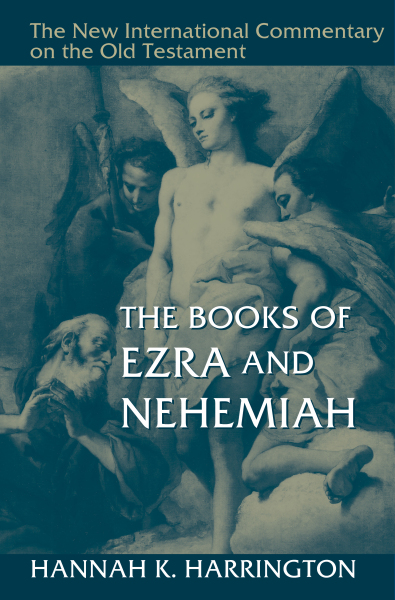
New International Commentary on the Old Testament (NICOT): The Books of Ezra and Nehemiah
The books of Ezra and Nehemiah represent a significant turning point in biblical history. They tell the story not only of the rebuilding of the temple in Jerusalem but also of the resurrection of God’s people from the death of exile. Hannah Harrington thus begins her commentary with an evocative description of these books as “the story of a new Israel forged out of the old” and “the text of a people clinging to their genealogical past and attempting to preserve their heritage while walking forward into uncharted territory.”
Throughout this commentary, Harrington combines analytical research on the language and culture behind the books of Ezra and Nehemiah with challenging thoughts for the Christian church today, bringing to bear a unique perspective on these books not as the end of Old Testament history but as early documents of the Second Temple period. Accordingly, Harrington incorporates a wealth of information from other Jewish literature of the time to freshly illuminate many of the topics and issues at hand while focusing on the interpretation and use of these books for Christian life today.
Reviews
“Dr. Harrington skillfully engages the reader in understanding the text, setting, and possible dates of the events narrated in the Ezra and Nehemiah memoirs, as well as their relationship to Chronicles. In laying the foundation for her readers, Harrington constructs a clear path for navigating the narratives. Her astute exegesis and social science approach offer insights into social drama, group identity, and social boundaries reflected in Ezra-Nehemiah. This is a timely must-read for scholars, practitioners, or those seeking to explore community crisis and renewal issues and the far-reaching consequences of Ezra-Nehemiah on modern concepts of Jerusalem’s status, purity, marriage, and societal reconstruction.” — Mignon R. Jacobs, Virginia Union University
“Hannah Harrington makes a significant contribution to the study of the books of Ezra and Nehemiah while offering pastors, lay readers, and academics alike an accessible commentary. Informed by extensive study, Harrington’s volume interacts with a wide range of scholarship and takes seriously the importance of the ancient historical context of Ezra and Nehemiah for interpretation. Harrington deftly handles controversial critical questions and presents an erudite, faithful reading of these important biblical books with an eye to their theological message and implications for Christians today.” — Paul S. Evans, McMaster Divinity College
Hannah K. Harrington is professor of Old Testament at Patten University, Oakland, California. Along with her numerous articles on the Bible, Second Temple Judaism, and Christianity, Harrington's other books include Holiness: Rabbinic Judaism and the Graeco-Roman World and The Purity and Sanctuary of the Body in Second Temple Judaism.
New International Commentary on the Old Testament (NICOT): The Books of Haggai and Malachi
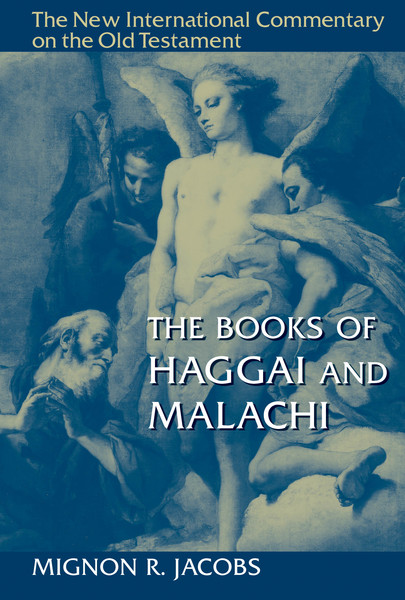
New International Commentary on the Old Testament (NICOT): The Books of Haggai and Malachi
Engaging with the latest scholarship, Jacobs provides a thorough introduction to both prophets in which she addresses questions of authorship, date, purpose, structure, and theology, followed by a new translation of the biblical text and a verse-by-verse commentary. With intertextual discussions about key aspects of the text and attention to competing perspectives, this commentary offers a rich new interpretation of Haggai and Malachi.
About the New International Commentary on the Old Testament:
Someone once said, "The past is another country -- they do things differently there." At times, indeed, the Old Testament resembles another very different country. Maneuvering through levitical laws, bloodshed in Joshua, or Daniel's apocalyptic visions, sincere readers often wonder what the Old Testament means and how it can be the Word of God. For several decades The New International Commentary on the Old Testament has helped countless people traverse this difficult literary terrain.
This premier commentary series enjoys a worldwide readership of scholars, pastors, priests, rabbis, and serious Bible students. They eagerly consult its high-quality volumes to inform their preaching, teaching, and academic research, and they warmly welcome each newly published volume as they would an encounter with a stimulating new friend. Through the rigorous yet reverent study contained in these commentary volumes, readers hear afresh the voice of the living God speaking his powerful word.
All of the NICOT volumes combine superior scholarship, an evangelical view of Scripture as the Word of God, and concern for the life of faith today. Each volume features an extensive introduction treating the biblical book's authorship, date, purpose, structure, and theology. The author's own translation of the original Hebrew and verse-by-verse commentary follow. The commentary itself carefully balances coverage of technical matters with exposition of the biblical text's theology and implications.
Readers who want to hear God's voice anew through Scripture will find The New International Commentary on the Old Testament to be a faithful, trustworthy guide for helping them navigate the strange other country we call the Old Testament.
“A commentary on Haggai and Malachi from a wise and experienced scholar like Mignon Jacobs is to be welcomed. . . . Those who may be unsure of what two shorter prophetic books have to say to the modern reader need look no further. This is an excellent contribution to an increasingly important commentary series.” — Daniel L. Smith-Christopher, Loyola Marymount University
“Mignon Jacobs offers fresh readings of Haggai and Malachi for pastors and students. Her work has an accessible style, and the voluminous footnotes list alternative positions within the scholarly discussions. Her introductions to these prophets emphasize their social location at different points in the Persian period, and her exegetical treatments in the commentary proper include extensive exploration of biblical contexts to explain the concepts, phrases, and idioms that shape the message.” — James Nogalski, Baylor University
“Jacobs provides an in-depth treatment of these two oft-neglected prophetic works, always with close attention to the Hebrew text.” — Marvin A. Sweeney, Claremont School of Theology, Academy for Jewish Religion California
“One of the most readable commentaries on Haggai and Malachi I have ever read. Jacobs’s achievement is even more admirable in that she often presents her readers with multiple interpretative options, and she brings to bear numerous intertextual references and much material to engender further discussion. This commentary on two important—though often overlooked—prophetic books will be very helpful to the main target readership of the series and beyond.” — Ehud Ben Zvi, University of Alberta
New International Commentary on the Old Testament (NICOT): The Books of Haggai and Malachi (Verhoef, 1987)

New International Commentary on the Old Testament (NICOT): The Books of Haggai and Malachi (Verhoef, 1987)
Haggai and Malachi are two significant but sometimes marginalized books. The New International Commentary: Haggai and Malachi by Pieter A. Verhoef is a comprehensive, critical interpretation and explanation of these two books in terms of how their messages are connected to today’s church.
In his introductions to these books, Verhoef includes information on context, literary aspects, theology, and the message itself. Along the way, he gathers compelling support for the reliability of these two books and contrasts his findings with background information from the ancient Near East, the Old Testament as a whole, and academic research past and current. In the midst of his excellent scholarship, Verhoef does not forget his pastoral experience—this commentary is accessible to Bible readers of all levels of experience.
New International Commentary on the Old Testament - Series Editor: Robert L. Hubbard Jr.
Maneuvering through Levitical laws, bloodshed in Joshua, or Daniel's apocalyptic visions, sincere readers often wonder what the Old Testament means and how it can be the Word of God. For several decades the New International Commentary on the Old Testament has helped countless people traverse this difficult literary terrain.
All the NICOT volumes combine superior scholarship, an evangelical view of Scripture as the Word of God, and concern for the life of faith today. Each volume features an extensive introduction treating the biblical book's authorship, date, purpose, structure, and theology. The author's own translation of the original Hebrew and verse-by-verse commentary follow. The commentary itself carefully balances coverage of technical matters with exposition of the biblical text's theology and implications.
New International Commentary on the Old Testament (NICOT): The Books of Joel, Obadiah, and Jonah
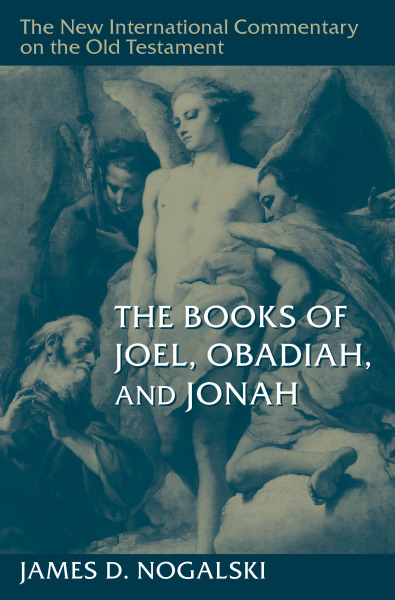
New International Commentary on the Old Testament (NICOT): The Books of Joel, Obadiah, and Jonah
In the latest volume of the New International Commentary on the Old Testament, James D. Nogalski offers a new translation of and commentary on several of the Minor Prophets—the books of Joel, Obadiah, and Jonah—that grapple with this theme in radically different ways.
This volume includes a robust introduction for each book, delineating its textual transmission, historical context, literary form, and major themes. The introduction also discusses the role of each book within the collection of the Twelve (Minor) Prophets. The commentaries properly explain the texts verse by verse, illuminating each book’s structure and canonical significance, yet always with an eye toward pastoral application.
Academically rigorous and accessibly written, The Books of Joel, Obadiah, and Jonah is an invaluable resource for scholars, students, and pastors.
Reviews
“If anyone has a contemporary word from the prophets, it is accomplished scholar and prolific author James Nogalski. An authority on the biblical prophetic texts, Nogalski puts his expertise on display in an extensive commentary that will contribute to the scholarly discourse and the practical preaching of Joel, Obadiah, and Jonah for generations to come. Nogalski’s attention to significant historical, grammatical, and stylistic details of these texts facilitates understanding how the enduring messages of the prophets of old continue to apply to contemporary readers. Scholars and preachers alike will greatly benefit from this superb resource that Nogalski has produced which brings Joel, Obadiah, and Jonah to life for modern students of the Bible.” — Dominick Hernández, Biola University
“This commentary has several strengths. The one that stands out for me is the attention paid to the ways that each of the three works interacts with and is shaped by its companions in the Book of the Twelve.” — J. Andrew Dearman, Fuller Theological Seminary
“James Nogalski has established himself as a foremost scholar of the so-called Minor Prophets, and it is thus welcome that he has completed this detailed commentary on Joel, Obadiah, and Jonah. Over the years he has immersed himself in scholarly study of the Twelve Prophets, and this is a fine detailed commentary with great attention to the language of the books as well as the scholarly theories. But he doesn't lead his readers into a scholarly maze from which they will never emerge. He helps the reader understand the Scriptures.” — John Goldingay, Fuller Theological Seminary
James D. Nogalski is director of graduate studies and professor of Hebrew Bible and Old Testament at Baylor University. He is best known for his work on the prophets, especially the Book of the Twelve.
New International Commentary on the Old Testament (NICOT): The Books of Joel, Obadiah, Jonah, and Micah

New International Commentary on the Old Testament (NICOT): The Books of Joel, Obadiah, Jonah, and Micah
Despite the popularity of the Minor Prophets’ focus on social justice, they are often overshadowed by the rest of the Bible. Additionally, they are home to a host of historical/literary challenges that scholars have been working with for decades—challenges that all Christians should be aware of. In the New International Commentary: Joel, Obadiah, Jonah, and Micah, Leslie C. Allen consults theological, literary, and historical sources to rebuild the context in which The Books of Nahum, Habakkuk, and Zephaniah occur, in turn helping you apply them to everyday life.
Each book covered in this commentary gets its own introduction that lays out information on context, literary traits (including textual criticism), canonicity, and theology. The commentary proceeds verse-by-verse and operates on Allen’s own translation of the original Hebrew.
New International Commentary on the Old Testament - Series Editor: Robert L. Hubbard Jr.
Maneuvering through Levitical laws, bloodshed in Joshua, or Daniel's apocalyptic visions, sincere readers often wonder what the Old Testament means and how it can be the Word of God. For several decades the New International Commentary on the Old Testament has helped countless people traverse this difficult literary terrain.
All the NICOT volumes combine superior scholarship, an evangelical view of Scripture as the Word of God, and concern for the life of faith today. Each volume features an extensive introduction treating the biblical book's authorship, date, purpose, structure, and theology. The author's own translation of the original Hebrew and verse-by-verse commentary follow. The commentary itself carefully balances coverage of technical matters with exposition of the biblical text's theology and implications.






- Adapt your commentary collection month-to-month based on the book or books you are studying.
- Build your commentary library strategically without hundreds of dollars of upfront investment.
- Never get stuck with commentaries you rarely use - swap them out each month as your needs change.



